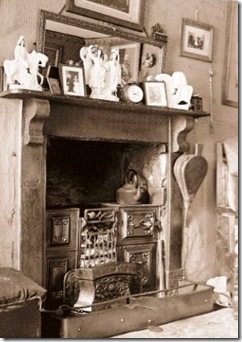“Aunt Ella said Great Aunt Annie use to have trouble with her legs. She would suddenly fall.”
There seemed little purpose in trying to ask in which generation Great Aunt Annie had lived, my mother lives in an eternal present. Aunt Ella was a great aunt to me, two generations back, so was Annie my mother’s great aunt or Aunt Ella’s great aunt? Three generations back or four generations back, Great Aunt Annie was someone with mobility problems, as present now as she had been in the Nineteenth Century.
Finding a similar sense of being present in centuries of time is not easy, perhaps the iPhone calendar allows imagination of it. It is said that the iPhone can provide dates to AD 60,000 and beyond, though why anyone should need such a calendar is baffling.
Perhaps some of us are like the elves in The Lord of the Rings. Tolkien’s mythical heroes always seemed an attractive race of beings. The Elven king Thranduil had fought Sauron the Dark Lord some three thousand years prior to the events of The Fellowship of the Ring. Wouldn’t such longevity completely transform our lives? When the elves do depart from the present world, they don’t die, they sail to the grey havens. It seems a prospect infinitely more attractive than the brief moment of human life.
Yet, if life could be prolonged, what difference would it make?
If we could live hundreds of years, with a reasonable quality of life, would it make a great difference to the way we live now? Would the additional years be devoted to the achievement of things for which there is presently not enough time – studies for which there had not previously been time, reading all the books which we had promised ourselves, planting the perfect garden, learning skills we had never considered, doing all those things we missed out on?
Or would the extra time be used much as much of the present time? Upon the death of a mutual friend, a friend once pointed out the old adage, “it is not the years in your life, it’s the life in your years that matters.” At the time, it seemed a pointing out of the obvious, but the passing years have reinforced the truth of his comment.
Perhaps it’s possible to live 500 years, and still be only 50, and perhaps it’s possible to last until the age of 500 having lived only 50 years. If one reached 2521, how much would be done?


